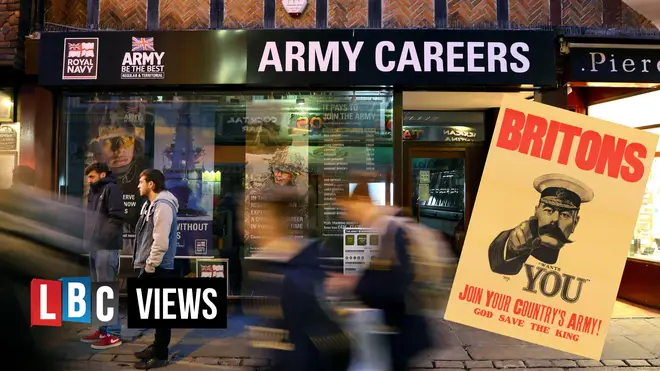
Ben Kentish 7am - 10am
22 January 2024, 10:16

If an alien crash landed in Westminster last week and found themselves wandering the corridors of Parliament, they may have believed that sending a few hundred asylum seekers to Rwanda was Britain’s number one national priority.
And yet beyond the self-indulgent squabbles of SW1, events of a more existential nature were taking place.
I speak of the warning from top NATO official Admiral Rob Bauer who on Thursday told reporters that Western civillians should prepare for an all-out war with Russia within the next 20 years.
The statement from NATO came just days after our own Defence Secretary Grant Shapps spoke of Britain being in a “pre-war” phase as he set out the risks posed by countries including China, Russia, Iran and North Korea.
The comments from both leaders come of course against the backdrop of rising tensions in the Middle East and the ongoing conflict in Ukraine.
The precarious state in which the world currently finds itself should serve as a daily reminder to us all that the really big issues of the day reside not at home but overseas.
Why then, given the current international context, do we so often hear criticism about the state of the UK’s Armed Forces?
Despite strong words from Grant Shapps and Defence Secretaries who have come before him, the army finds itself in the midst of recruitment crisis with new analysis revealing that Britain’s once revered fighting force will have fewer than 70,000 soldiers within two years.
The recruitment target for regular soldiers has been missed every year since 2010 and shockingly we learn that, at the current rate, the army will in a decade’s time stand at just 52,000 - small enough to fit inside Manchester City’s Etihad Stadium.
There have been suggestions that the shortfall in numbers can be blamed on the strict medical tests that recruits must meet, including a bizarre rule banning tattoos above the collar line.
Clearly such requirements need to be ditched but the problem goes much deeper than just tattoos.
The reality is that for people my age, typically known as Gen Z, the army offers zero appeal as a future career.
Why would the ‘get rich quick’ Instagram generation want to ditch the influencer life for the front line with a starting salary of just over £18k.
You also have to look at attitudes among Gen Zers to conflict.
My generation have got used to peace.
In fact, we quite like it and at all costs look to avoid confrontation, whether that be at work or in a social context.
Our only experience of war comes through video games like ‘Call of Duty’ or ‘Battlefield’.
Conflict is always at a distance.
Then there’s the issue of national identity.
The idea of serving your country has as much resonance today as the name Lord Kitchener.
Surely it’s time to bring back some form of national service, something the Swedish government have recently re-introduced ahead of the country’s accession to NATO.
Politicians have their own role to play especially in how they convey the dangers we face around the world.
There needs to be a greater degree of honesty from government about the real prospect of war rather than speaking of conflict as something that happens in lands far away.
The sad truth, that can explain the recruitment crisis in our Armed Forces, is that the question Generation Z so often asks is ‘what can my country do for me’ instead of ‘what can I do for my country’.
Until that changes, expect the great ‘hollowing-out’ of our military to continue.
LBC Views provides a platform for diverse opinions on current affairs and matters of public interest. The views expressed are those of the authors and do not necessarily reflect the official LBC position.
To contact us email views@lbc.co.uk